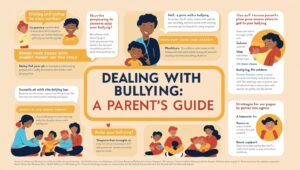
Talking to your teenagers about HIV may seem like a daunting task. The subject can feel uncomfortable, and you may not have a strong sense of how much information your children already know about the topic. The short answer is that you should talk to them about HIV. Knowing when to have this conversation can help you to have better results.
Discuss in the Early Teen Years
When you talk to your children about puberty and the changes their bodies will experience in the upcoming years, you can bring up the topic of sex and sexually transmitted diseases, such as HIV. At this stage, depending upon the age of your children, you may choose to provide only the most vital information. As your teenagers grow older, you can offer more details about the topics.
Reiterate During School Education
Many schools teach about sex and sexually transmitted diseases through their regular educational programs. Find out from your children’s school when these lessons are going to occur. Then, you can supplement at home. Your teenagers might feel uncomfortable asking certain questions in school, and you can let them know that they are free to talk to you about such topics at home.
Talk When Relationships Start
You should also have these conversations when your teenagers start dating. Before your children are in relationships, the lessons and lectures at school and at home might seem detached from their lives. Once your youngsters get into relationships, however, these topics become more real. Let your teenagers know about the options for safe sex. Do not nag or chastise your children. You want your kids to know that you are a safe and nonjudgmental resource for important information about safe sex. Inform your teenagers about resources at school or in the community that can provide further assistance.
Be There if Issues Arise
Your teenagers might find themselves in situations where they need virtual order PrEP Medication, and you want your kids to know that they can ask you for help. If your teenagers are afraid that they have been exposed to HIV, they are likely frightened and anxious. Now is not the time to lecture your children. Let them know what options are available. Help them navigate the process of purchasing the necessary products and making an appointment with the appropriate doctor.
Ultimately, yes, you must encourage your teenagers to use protection against HIV. Throughout the young lives of your children, you have plenty of opportunities to talk with them about these topics and to encourage healthy behaviors.


